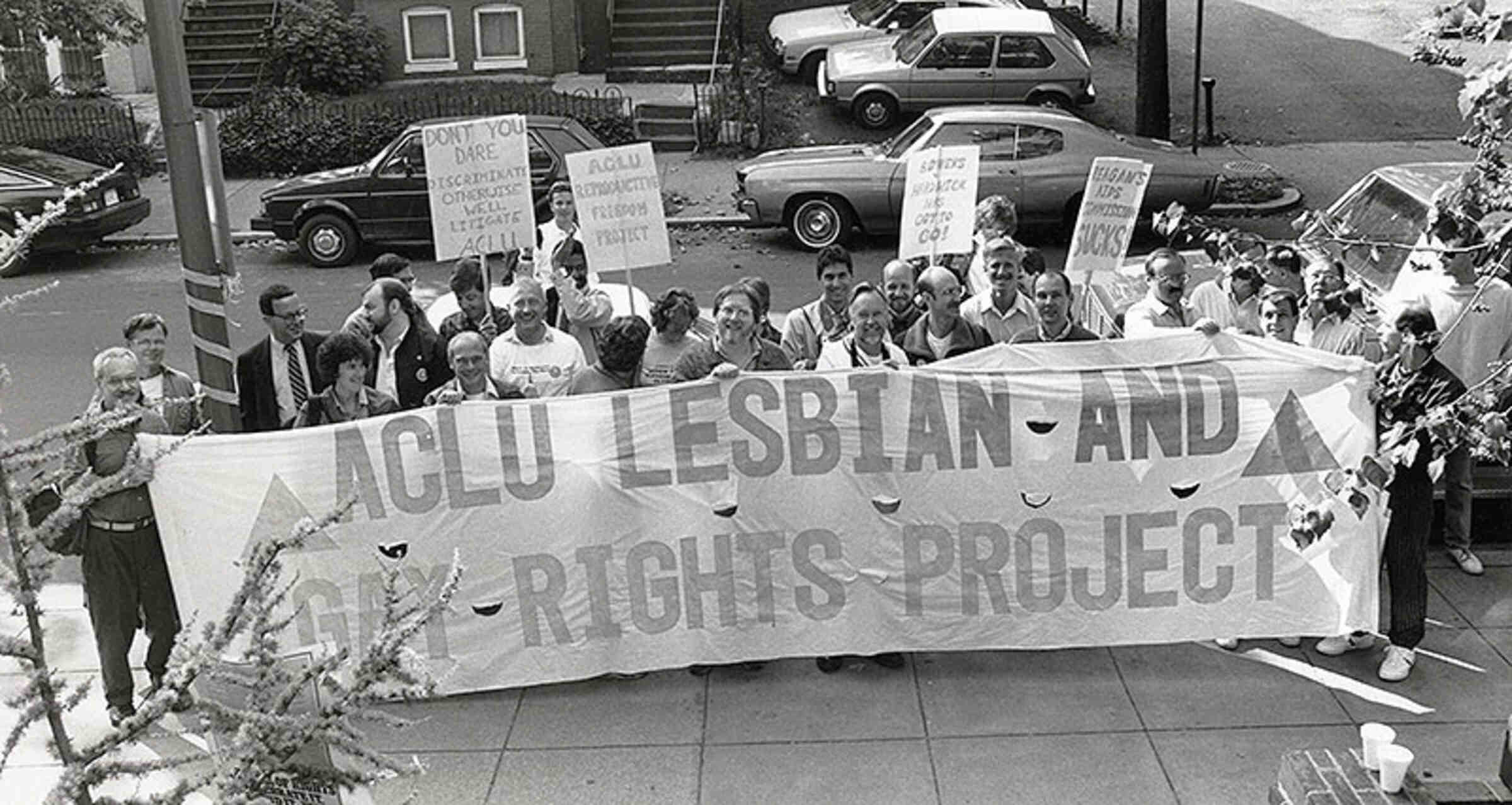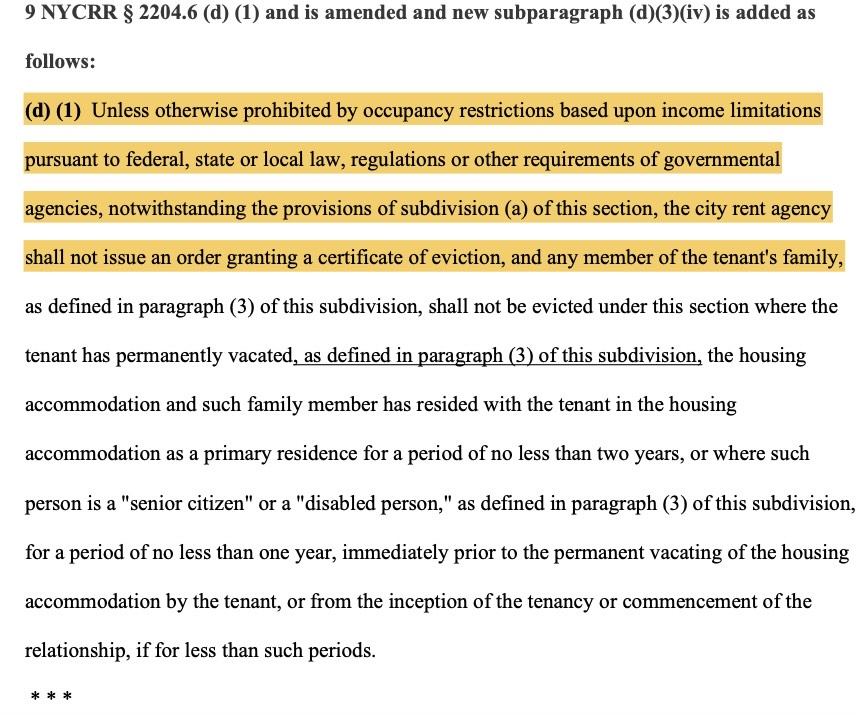The Legal Battle for LGBTQ+ Rights in Braschi v. Stahl
Braschi v. Stahl Associates co.
Start of Dispute
Stanley Stahl was the landlord of the building where Braschi and Blanchard lived. Because the apartment was rent-controlled, landlords could not increase the rent while someone still lived in the home and was paying rent. When Blanchard passed away, an opportunity was created to free the apartment from the rent control regime and increase the rent to match current-day marketing. A few months after Blanchard died, Stahl began sending threatening messages to Braschi, demanding that he move out of his house. At this action, Miguel contacted a lawyer to start the legal case. The first lawyer who represented Braschi was Owen Wincig. Wincig sought a preliminary injunction prohibiting Stahl from evicting Braschi, which was then issued as an order by Justice Harold Baer Jr. until further notice.
William Rubenstein on the subject of Owen Wincip and his technical strategies, 2019 (Courtesy of NYS Courts; YouTube)
Stahl's Appeal
One detail of this case that separated it from many similar cases at the time is that Stahl appealed. He was the first landlord to do so. William Rubenstein from the ACLU Lesbian and Gay Rights Project later joined Braschi’s legal team and filed an amicus brief arguing against Stahl. However, months later, the court dismissed Braschi’s claim that a same-sex couple could be recognized as a family without formal documentation.
"Owen . . . . He went in first as the tenant and he sued the landlord, and he got the preliminary injunction . . . . this case was one of the cases that could go up to the top courts of New York just because of the technical procedures."
-- William Rubenstein, 2025, personal interview

The ACLU Lesbian and Gay Rights Project (Courtesy of ACLU)

Section 2204.6(d) of New York's Rent and Eviction Regulations 2022 forbids the eviction of a family member of the deceased. (Courtesy of HomesandCommunityRenewal.gov)
New York Court of Appeals
Rubenstein convinced Wincig to allow him to take over the case. With him in charge, backed by the ACLU, the issue caught the attention of the state's higher courts. As expected, a few months later, the New York Court of Appeals agreed to hear the case.
On the left is the law that was referenced in the case. Since it's the new and updated version, Many parts have been changed. The definition of family, for example, used to be exclusive to relationships of marriage, blood, adoption, or other legal documentation.
Debate
Rubenstein had two principal ideas. First, the anti-eviction law from the Rent and Control section should have a functional definition of family in a way that would not be discriminatory or inconvenient. Second, it was unconstitutional to state that the relationship between Braschi and Blanchard was anything less than those familial relationships of ones related through marriage, blood, or adoption just because there was no traditional justification.
". . .Objective criteria, such as documentary evidence of birth, or participation in a marriage ceremony, instead of requiring individualized proof on a case by case basis."
-- Dean Yuzek, Stahl's lawyer's oral debate, 1989, NY court
Rubenstein wanted a family to be defined more functionally. Therefore, he pointed out that Braschi and Blanchard fulfilled the responsibilities and duties one would perform in marriage, stating that it was proof of their relationship as a family. This was an essential argument in developing his definition of family that included same-sex partners.
William Rubenstein during the court arguments, 1989. (Courtesy of Prof. William Rubenstein)
"In the context of eviction, a far more realistic, and certainly equally valid, view of a family includes two adult lifetime partners whose relationship is long term and characterized by an emotional and financial commitment and interdependence. This view comports both with our societys' traditional concept of family and with the expectations of individuals who live in such nuclear units."
-- The Plurality Opinion Written by Judge Titone and Joined by Judge Kaye and Alexander
Ruling
Six weeks later, the court sided with Braschi, and ruled that Braschi and Blanchard’s relationship was familial, meaning that Braschi’s eviction was prohibited, and for the first time in the USA, an openly gay couple was legally recognized.
William Rubenstein, quoting Judge Titone's plurality, 2019. (Courtesy of NYS Courts; Youtube)
"The interests are properly balanced if the regulation's exception is applied by using objectively verifiable relationships based on blood, marriage and adoption, as the State has historically done in the estate succession laws, family court acts and similar legislation . . . . The court should not reach out and devise an expansive definition in this policy-laden area based upon limited experience and knowledge of the problems."
-- The Dissenting Opinion Written by Judge Simons and Joined by Judge Hancock